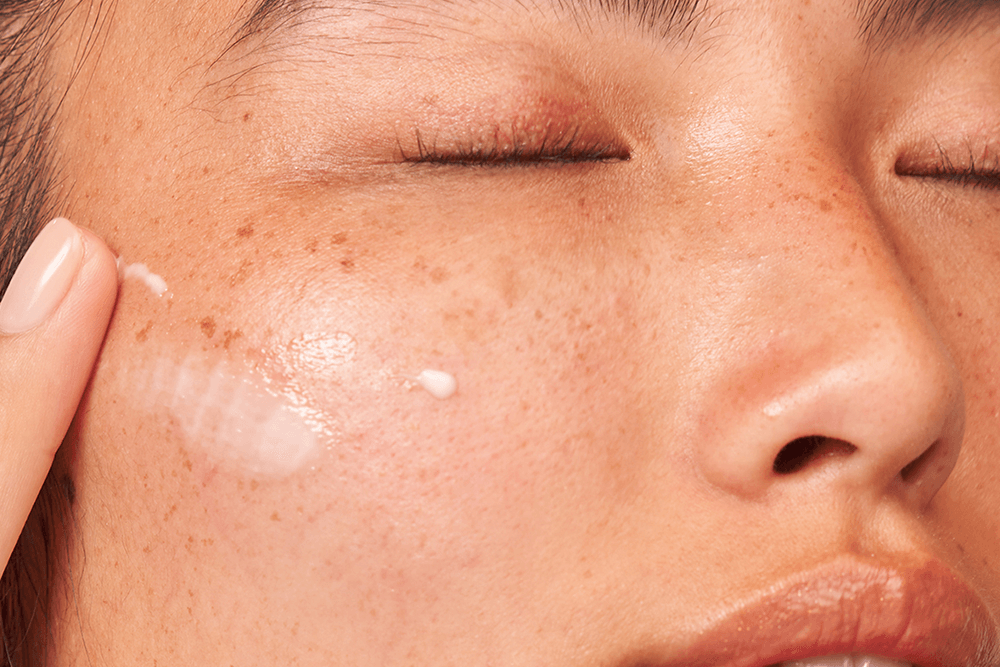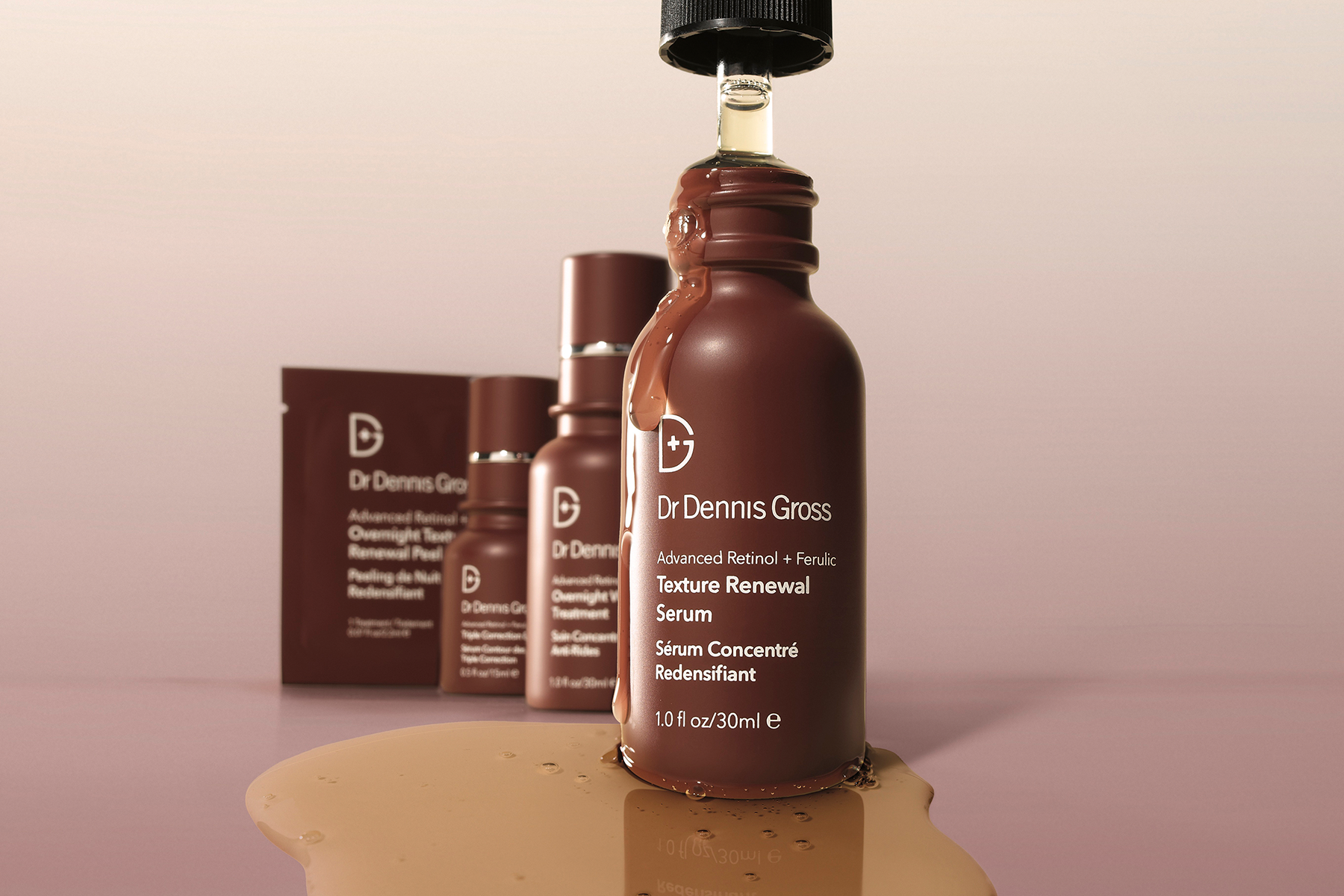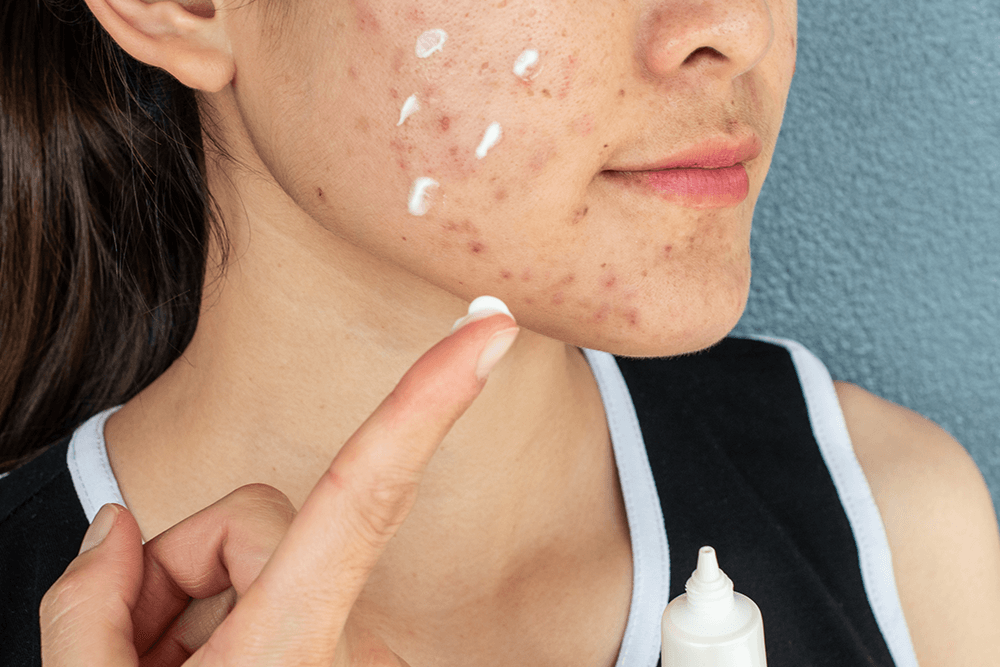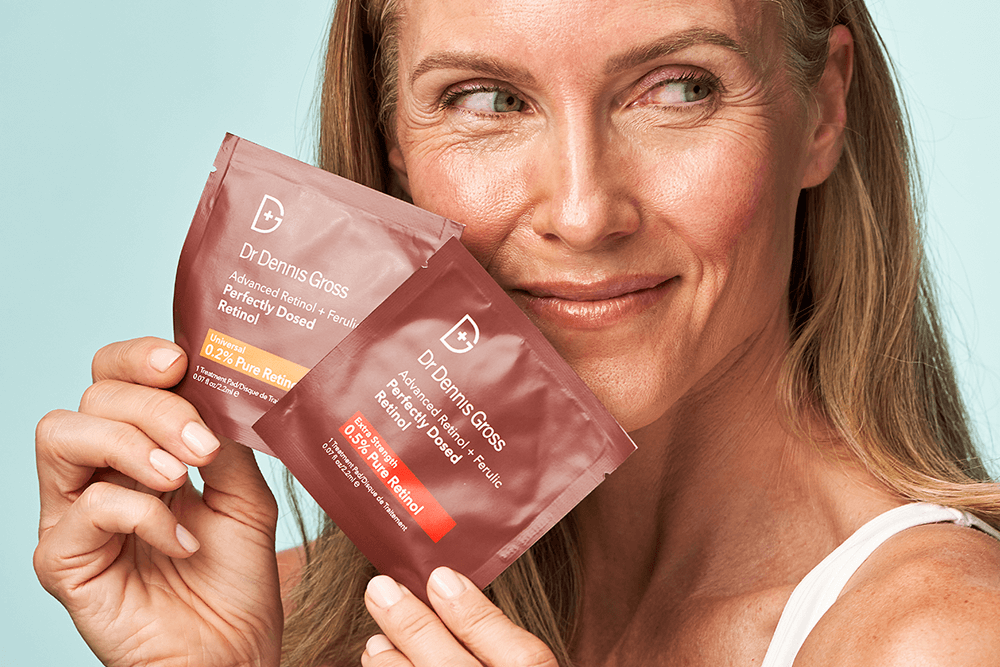The+Source
Typically, your dermatologist doesn’t want to play favorites. But it’s no secret that every derm’s three can’t-live-without skincare ingredients are retinol, vitamin C, and SPF. That’s because it’s also no secret that dermatologists love scientifically verified results. And the trifecta of retinol, vitamin C, and SPF have been proven time and again to be top-notch ingredients when it comes to stimulating collagen formation, reducing signs of sun damage, and preventing skin cancer, among other long-term benefits. SPF is pretty straightforward: It protects you from the sun and is the very last thing you apply to your skin before you step outside. But retinol and vitamin C are a little less obvious and using them effectively can require a bit more education. For that, read on.
What is retinol?
A derivative of vitamin A, retinol increases cellular turnover, ups collagen production, and inhibits the enzyme linked to melanin manufacture. Using retinol consistently will even out your skin’s tone and texture and reduce acne, fine lines, and hyperpigmentation.
What is vitamin C?
Vitamin C is one of nature’s most potent antioxidants. It neutralizes the free radicals generated by everyday life (exposure to pollution, stress, UV light, and so forth), preventing them from breaking down existing collagen in your skin. Vitamin C also helps block pigment production (fewer dark patches), stimulate collagen growth, and thanks to its anti-inflammatory properties, it can cut down on the number of acne lesions.
Can you use retinol and vitamin C together?
The short answer is yes. But as with many things in life, the full answer is more complicated. Retinol and vitamin C can’t be formulated together in the same bottle; the chemistry simply won’t work. (So if you ever see a product touting a two-in-one formula, run the other way because its science is bogus.) But just because they can’t live together in a shared container doesn’t mean you can’t layer the two ingredients or use them at different times of the day.
The benefits of using retinol and vitamin C together
The human body is wondrously complex. The descriptions above of how retinol and vitamin C work in the skin are incredibly simplified descriptions of the actual mechanics taking place. There’s no one single way the body makes collagen or blocks the formation of skin discoloration. To get a truly comprehensive result, you need to pull as many skin-stimulating levers as you can. Since retinol and vitamin C work in different ways, combining them in one skincare routine increases the chances of stimulating your skin to fire on all cylinders.
Building a retinol and vitamin C skincare regimen
since retinol can make your skin sensitive to the sun, most skincare pros recommend applying the ingredient at night. And since vitamin C’s antioxidant powers mean it’s a great secondary line of defense to your sunscreen, catching free radicals that make their way past your SPF, those same experts suggest a layer of vitamin C in the morning. For a comprehensive routine incorporating both retinol and vitamin C for the best effect, see below.
Morning Skincare Routine
- Cleanser: Start with a gentle, all-purpose face wash, like Dr. Dennis Gross Alpha Beta AHA/BHA Daily Cleansing Gel, to remove any residue that formed overnight.
- Exfoliant: Like sunscreen, a gentle chemical peel (we’re partial to Dr. Dennis Gross Alpha Beta Universal Daily Peel, of course) is something to do every day to keep your complexion glowing and clear.
- Serum: This is the first step of the morning regimen to incorporate vitamin C (but it won’t be the last!). A facial serum loaded with vitamin C (try Dr. Dennis Gross 15% Vitamin C Firm & Bright Serum) will saturate skin with the all-important antioxidant and help stave off fine lines, dark spots, and dullness.
- Moisturizer: Give your skin an additional vitamin C boost by smoothing on a moisturizer that’s also rich in vitamin C, such as Dr. Dennis Gross Oil-Free Radiant Moisturizer or Dr. Dennis Gross Dewy Deep Cream (if your skin is on the drier side). This double dose will give you that much more vitamin C benefits.
- Eye cream: An eye cream containing vitamin C (try Dr. Dennis Gross Firm & Bright Eye Treatment) tapped all around the eye area will help make quick work of crepiness and dark circles by working to increase collagen levels.
- SPF: Finish by applying a mineral sunscreen with an SPF of at least 30, like Dr. Dennis Gross All-Physical Lightweight Wrinkle Defense Broad Spectrum Sunscreen SPF 30, every single day, rain or shine.
Evening Skincare Routine
- Cleanser: Remove the day’s dirt, oil, and makeup with your Dr. Dennis Gross Alpha Beta AHA/BHA Daily Cleansing Gel from the morning or try Dr. Dennis Gross Hyaluronic Marine Meltaway Cleanser, if you’d rather not rinse.
- Exfoliant: Nighttime is the perfect time for retinol. Two to three times a week, add Dr. Dennis Gross Advanced Retinol + Ferulic Overnight Texture Renewal Peel into the mix. It will help resurface the skin, as well as increase radiance.
- Serum: The next step is a potent, retinol-based serum. The exact one you select will be based on your unique skin needs. If lines are your biggest concern, try Dr. Dennis Gross Advanced Retinol + Ferulic Overnight Wrinkle Treatment. If you feel breakouts are more your issue, Dr. Dennis Gross Advanced Retinol + Ferulic Texture Renewal Serum is for you.
- Moisturizer: No matter what your serum selection, you’ll want to follow it with a rich hydrator, like Dr. Dennis Gross Advanced Retinol + Ferulic Intense Wrinkle Cream.
- Eye cream: An eye treatment rich in retinol (Dr. Dennis Gross Advanced Retinol + Ferulic Triple Correction Eye Serum is a great example) will help increase the amount of skin-plumping collagen in the area.
Side effects & key considerations
Retinol
It brings new cells to the skin’s surface that are extremely sensitive to the sun. If you didn’t already have a good enough reason to apply daily SPF, adding getting a sunburn to the list of ready why sunscreen every day is a must.
Retinol can be linked to skin irritation, like redness, peeling, or flaking – especially when you begin using it. However, these reactions go away as your skin adapts.
Retinol can’t be used by those pregnant or breastfeeding.
Vitamin C
This ingredient is generally considered safe for anyone to use, even those with sensitive complexions. (However, if that’s you, start by applying vitamin C no more than once per day until you see how your skin reacts.) What’s most important is the type of vitamin C in your product formulation. Look for the words “ascorbic acid” on the label. There are many forms of topical vitamin C. Ascorbic acid is the one that absorbs best into the skin.
Discover Dr. Dennis Gross Skincare for All Your Skincare Needs
For more skincare tips from the experts at Dr. Dennis Gross, check out our blog’s newest content today. Shop the collection of Dr. Dennis Gross bestselling skincare backed by dermatologists.







